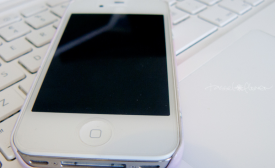social media
One morning in June, the owners of the African restaurant La Mamma in Warsaw found ugly and offensive graffiti near its entrance. Someone in the Muranow neighborhood, the site of the former Jewish ghetto, apparently did not like the restaurant, which is a meeting place for Nigerian immigrants. To make sure the eatery’s owner got the message, the offender painted a black man hanging from a rope and added the words, “chocolate daddy.”
The grassroots campaign to break Saudi Arabia’s ban on female drivers isn’t set to start until Oct. 26. But a lot of women aren’t willing to wait that long. They’ve already recorded themselves getting behind the wheel in major Saudi cities. And although a few were stopped by police, many more have been inspired to take to the streets. Support has poured in from all over the world, and they now have an official song for their campaign.
The active presence of Iranian Foreign Minister Mohammad Javad Zarif on Facebook and Twitter has been a great tool and venue for Iran’s public diplomacy with Western journalists. It has also served as an unfiltered source of direct interaction between Zarif and the Iranian Internet-savvy youth.
A World Cup berth appears unlikely after their home defeat to Nigeria but a growing legion of Ethiopian fans are taking to Twitter to lure overseas-based players eligible to represent the Walyas. Nigeria came from behind to snatch a last-gasp 2-1 win over Ethiopia in the first leg of their playoff in Addis Ababa after two goals from Emmanuel Emenike helped them take a big step towards next year's finals in Brazil.

How does what we know about information and communication technology (ICTs) and persuasion help practitioners makes sense of how to integrate technology into the mission of public diplomacy? We know that ICTs can be:
A) Persuasive by its ability to facilitate or enable other attempts at persuasion.
B) Persuasive as a transmission vehicle (the medium endows some form of credibility or legitimacy).
C) Persuasive as a kind of context for communication - an intermediary - that enables the influence potential of social ties.
How does what we know help practitioners makes sense of how to integrate technology into their mission? We know that information and communication technology can be: A) persuasive by its ability to facilitate or enable other attempts at persuasion, B) persuasive as a transmission vehicle (the medium endows some form of credibility or legitimacy), or C) persuasive as a kind of context for communication, an intermediary, that enables influential power of social ties.
Glenn Rogers lives in Brooklyn. He’s from Australia. Most importantly, he has no affiliation with Rogers Communications. Yet none of those easily obtainable facts were enough to save the entrepreneur from being on the receiving end of a torrent of angry messages unleashed by Rogers customers in the throws of a collective Twitter fit Wednesday night.
Should public diplomacy policy-makers turn to digital diplomacy tools for the future of practice? I ask this question to provoke some reflection among public diplomacy watchers beyond the quick criticism of tweeting ambassadors and social media campaigns. There seems to be some debate over whether or not digital media practices represent the future of US public diplomacy.







